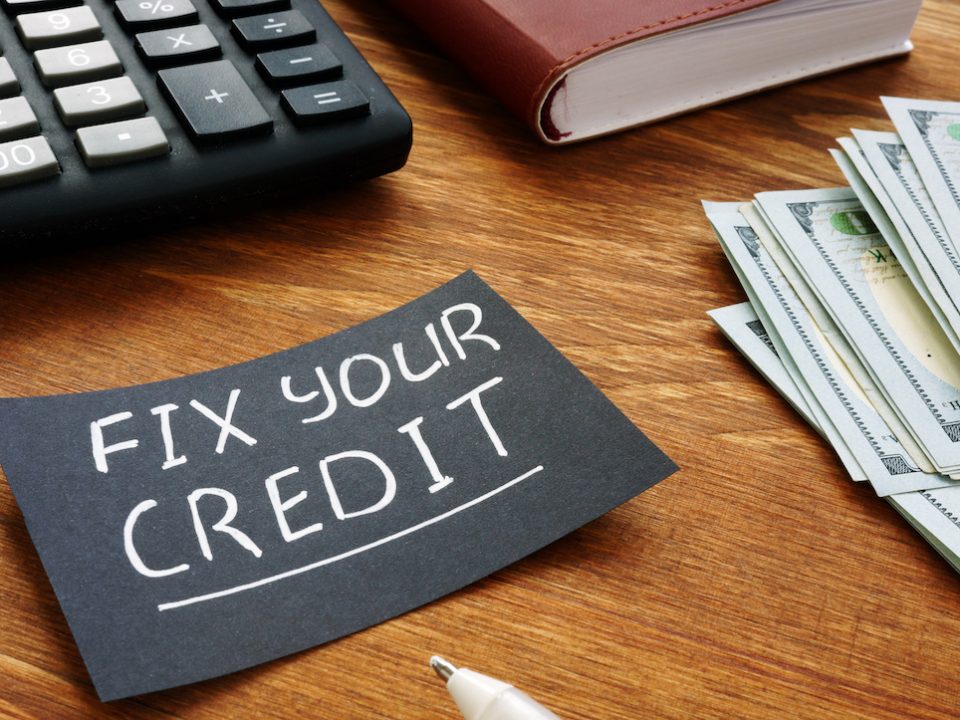Poor credit can make or break you during some of the most important decisions of your life. Your credit score is used as a tool to determine your trustworthiness by lenders. Your credit score can affect several areas of your life, including: the home you live in, your job, and even your relationships. If you think you’re being negatively impacted by your credit score, you might need to consider improving it before you attempt a refinance.
If your credit score isn’t where you want (or need) it to be, don’t despair, lender approval is still possible by making some changes to how you are currently managing your finances. Confused about where to start? Learn first steps for improving your credit, to get you to your goal credit score more quickly.
Signs You Need To Improve Your Credit Score
Sometimes we’re oblivious to what is going on with our finances. It’s easy to live day to day without thinking about how your late payments or skipping payments could be affecting your financial health. In many cases, people might not be sure if they have been living with bad credit or not. If you are not familiar with your credit score, there could be telling signs that you need to improve your credit score.
You’re afraid to look at your credit report
If you are coming up with excuses on why you can’t check your credit report, then clearly there must be something wrong. If you make the time and learn how to check your credit, then you’ll be able to know where you stand and know whether or not you should be seeking credit report help or not. You want to do this before it comes time for you to buy a new home or get a new car, because a bad credit score will hinder your chances at better financing with low rates.
You’ve been rejected for a credit card
If you have been looking into getting a credit card, applied, but then had a denial sent your way, it’s highly likely that you have bad credit. Looking at your credit report will show you potentially why you were denied a credit card.
You can’t rent
Even if you want to get an apartment, your credit will be run. Apartment complexes and landlords will run your credit to see if you’re creditworthy. If you have had problems making your rent payments in the past, it could be affecting your ability to get a new apartment. Your negative renting history will show up on your credit report and get your application turned down.
You keep hearing from collection agencies
When collection agencies begin calling you, that’s a bad sign. This means that your lenders have lost faith in you paying back your bills and will no longer be trying. When a bill goes to collections, it will appear on your credit report and will prevent you from getting approved for future loans. This is one of the top reasons you to improve your credit – so you can pay these off fast.
You only get high interest rates
You’re given an interest rate when you take out a credit card or a loan. Lenders will up their interest rates based on what they see off of your credit report. When you prove to be a worthy lender, they’ll go back down after time. However, the more you are late on payments or forgo payments altogether, your interest rates will stay high.
What is a Good Credit Score?
Credit scores are what lenders (mortgage lenders, credit card companies, and even car dealerships) use to make decisions about whether or not they think that you would be a good borrower. Your credit score will be used by lenders to determine what terms they’ll include in their offer, like your interest rate or the down payment required.
Credit scores can range from 300-850. The lower end of that is considered a bad credit score. Typically, anything lower than 700 isn’t considered great. 700 or greater is considered in good standing. However, most credit scores average between 600-750, according to Experian.
Broken down, here are credit score ranges based on FICO® scores and what they mean:
- 300 – 579
Very poor; With a credit score in this range, you may have to pay fees or deposits. However you might not be approved for loans or credit at all. - 580 – 668
Fair; If you have a score within this range you’re a subprime borrower. It’s not ideal. - 670 – 739
Good; Applicants within this range seem to be in good standing. If you fall within these numbers, only 8% of applicants will likely fall delinquent in the future. - 740 – 799
Very good; If you are a borrower in this range, you are likely to receive better than average rates from creditors. - 800 – 850
Exceptional; If you’re in this range, you’re at the top of the list and will get the best rates from lenders.
If you find yourself at a credit score below 650, you need to make some changes and work on improving your credit. When you improve your credit score, you will be able to get the best interest rates on loans and credit cards in the future.
How to Improve Credit
If you are trying to repair your credit, the biggest step you can take is to pay the minimum monthly payments on your bills, and to do it on time. Once your accounts are current, continue paying all of your payments on time.
It is not uncommon for every single person to need financial counsel at one point of another. If you find that you are drowning in debt, you have options.
You might find that the best thing for you is to get a debt consolidation loan to gather up all of your debts and merge them into one entity. If your debt isn’t too substantial and you have a high enough credit score, this could be the best way to get your debt under control with a reasonable interest rate.
Other debt relief tools include: debt management, debt settlement, debt consolidation, and last resort: bankruptcy.




